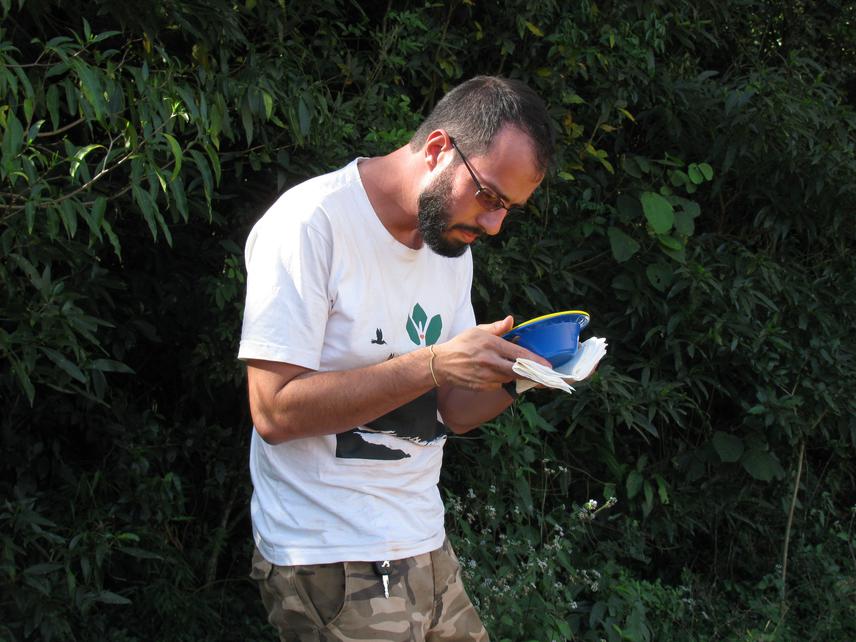Rodrigo Barbosa Gonçalves
The main focus of the project is to assess the possible impact of forest fragmentation on communities and populations of bees (western Paraná - Brazil).
Bees play a vital role in terrestrial ecosystems as the main group of flowering plants pollinators. These insects pollinate not only native plants but also have an important role in agriculture: it is estimated that the economic value of worldwide pollination could reach 200 billion dollars annually.

Sorting pan traps.
The importance of these insects is threatened by his decline that has been recently documented. The factors that seen as critical in the decline of pollinators has been the degradation of habitats, driven largely by land use. Paraná is the largest Brazilian State producer of agricultural crops, and this level was only achieved with the intensive degradation of over 90% of its original forest coverage.
This degradation could had a great impact on wild bee fauna, estimate to have locally about 200 species. Besides the loss of floral resources, the habitat destruction may have caused the disappearance of other sources necessary for bees, as nesting substrates for an example. The study aims to investigate the effects of forest fragmentation on the bee fauna in a rural landscape of South Brazil. The intensive agriculture in the Paraná state possible had a great impact on wild bee fauna.
The fragmentation effect will be analysed relating different fragment descriptive parameters with aspects of bee communities, such as richness and diversity, and with genetic diversity of selected species. The study will be conducted in the western region of Paraná, Brazil, in the municipalities of Palotina and Terra Roxa. A total of 10 areas will be sampled during the months from November to March.
These areas areas includes to Conservation Reserves, Parque Estadual São Camilo (Palotina) and Reserva Particular do Patrimônio Natural Fazenda Açu (Terra Roxa), both reserves have about 400 ha. The products generated by this project will be directly published as scientific contributions and could be used to guide conservation policies in regional and global scales.